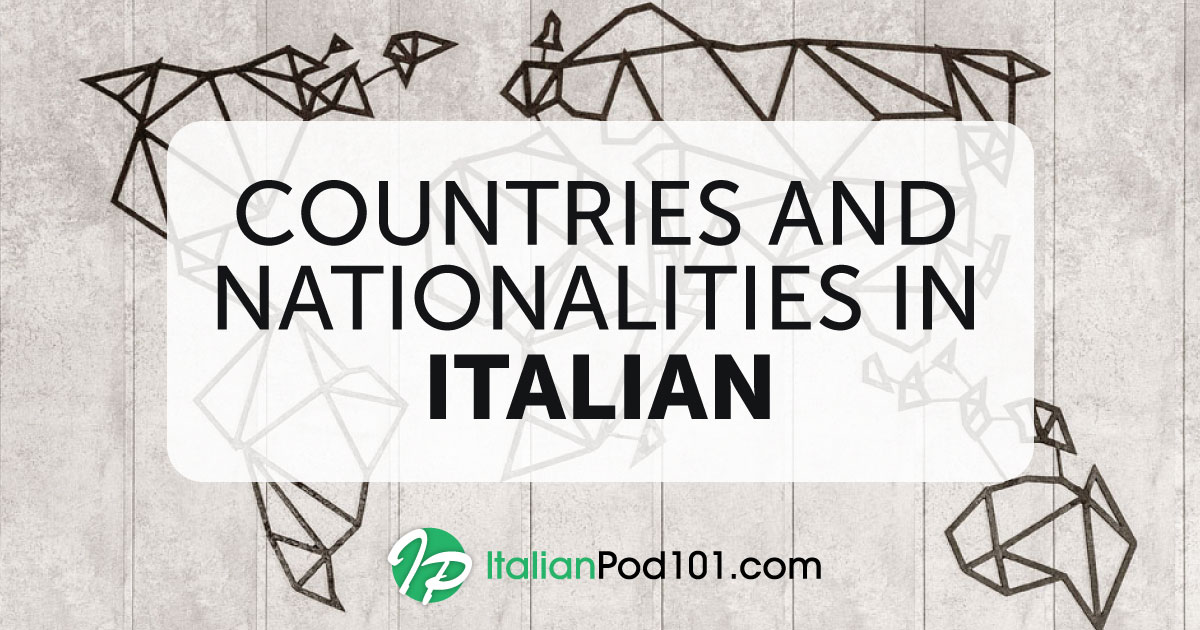Archive for the 'Advanced Italian' Category
April 20, 2022
Learn the Most Useful Advanced Italian Phrases
Have you been studying Italian for a while? If so, it’s time to step up your skills and venture into more advanced scenarios. In this guide, we have listed a great number of advanced phrases, structures, and idioms that will help you show competence and confidence in the most diverse of environments.
It is important to study advanced Italian phrases because it will allow you to fit right in wherever you are. For example, if you plan on attending an Italian university, knowing advanced phrases will help you write an essay or perform well in an oral exam. Or, you might need to submit your resume to apply for your dream job; advanced phrases will definitely help with that while also giving you more confidence when it’s time for your... Show more
December 16, 2021
Advanced Italian Words to Spice Up Your Vocabulary
So, you’ve passed the intermediate level in Italian. You have all the basics and then some, but you want to go the extra mile and learn more advanced Italian words and sentences.
Are you applying for an Advanced Italian certificate , corresponding to the C1 or C2 level? Or are you enrolled in an Italian university? Maybe you just need to write an essay, compose the perfect cover letter, or take part in more formal and complex discussions with your Italian friends and colleagues.
According to the Common European Framework Reference for Languages (known in Italian as QCER, Quadro Comune Europeo di Riferimento delle Lingue), advanced learners of a language are able to effortlessly understand virtually everything, whether it’s written... Show more
November 13, 2020
Our 2020 Guide to the CILS Italian Test
Maybe you’ve already thought about taking an Italian proficiency test, or maybe you have no idea what we’re talking about. In this article, we’ll explain why it’s important to take an Italian test like this one, and we’ll guide you through everything you’ll need to do to sign up and pass the most widely accepted proficiency test (CILS). By the time you’re done reading, you’ll be totally prepared for the big day—even if this is your first time hearing about the test.
Spoiler alert: You need to get started six months beforehand!
Table of Contents
What is a Proficiency Test?
Why Take a Proficiency Test?
What is the CILS Certification?
How to Get Started
What to Expect on the Day of the Test
The CILS DUE-B2 Test
... Show more
April 10, 2020
Life Event Messages: Happy Birthday in Italian & More
Being part of your family’s, friends’, and colleagues’ life events is important in having a loving and caring relationship with them. That’s why we at ItalianPod101 have listed the most important messages for life events in Italy: In this article, you’ll learn how to say Happy Birthday in Italian, Italian Christmas greetings, messages you can use in case of funerals or marriages, and much more.
With our guide to life event messages in Italian culture, you’ll always know what to say.
Table of Contents
The Best Messages for Life Events in Italy
Speak and Behave Like a Real Italian with ItalianPod101
1. The Best Messages for Life Events in Italy
1- How Do You Say Happy Birthday in Italian?
Birthdays are very important for... Show more
December 25, 2008
Happy Holidays and Happy New Year From ItalianPod101.com!
Happy Holidays and Happy New Year from everyone here at ItalianPod101.com! We're grateful to have listeners just like you, and we're eagerly waiting for the upcoming year to learn Italian together!
And when the New Year comes around, be sure to make a resolution to study Italian with ItalianPod101.com!
Have a healthy and happy holiday season.
From the ItalianPod101.com team!









